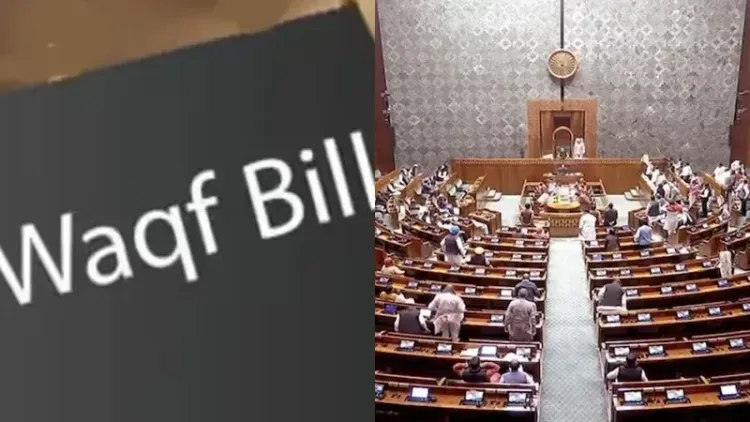UMEED Act: A Step Towards Social Welfare in Waqf Management, Says Minority Affairs Ministry

Synopsis
Key Takeaways
- UMEED Act aims to enhance transparency in Waqf management.
- Restoration of properties to government authorities is a key provision.
- Historical context shows over a century of reforms in Waqf laws.
- Efforts to combat misinformation about government involvement in personal laws.
- Continued need for improvements in Waqf property management.
New Delhi, April 7 (NationPress) The recent passage of the Unified Waqf Management, Empowerment, Efficiency, and Development Act, 2025 (UMEED Act) signifies a pivotal moment in the transformation of Waqf legislation from 1913 to 2025 aimed at enhancing social welfare through Waqf properties, according to an official announcement made on Monday.
The evolution of Waqf laws in India from 1913 to 2025 reflects a robust initiative to safeguard and efficiently manage Waqf assets for the benefit of society while establishing a structured administration.
“Every legislative change has sought to address contemporary challenges while preserving the core purpose of Waqf endowments,” stated the Ministry of Minority Affairs via a post on the social media platform X.
In an effort to combat misinformation and inform the public about the advantages of the UMEED Act, the Ministry collaborated with the Ministry of Information and Broadcasting, asserting, “The Waqf (Amendment) Act 2025 represents a crucial stride towards enhancing transparency, accountability, and inclusivity in Waqf management.”
A significant aspect of the UMEED Act is the restoration of properties to governmental authorities. “Any property designated as Waqf by the government will no longer be considered Waqf. Disputes regarding ownership will be adjudicated by the District Collector, who will then report to the state government,” as outlined in the Act.
On a day when recent amendments to the Waqf Act were discussed at the Supreme Court before Chief Justice of India (CJI) Sanjiv Khanna for urgent deliberation, the Ministry of Minority Affairs released a comprehensive document detailing the legislative history of Waqf law over the last century.
Beginning with the introduction of the Mussalman Wakf Validating Act, 1913, which permitted Muslims to establish Waqfs for familial and charitable purposes, the Ministry cataloged the features of the Mussalman Wakf Act, 1923, and the Mussalman Wakf Validating Act, 1930, to emphasize the initial strides towards accountability and transparency in Waqf administration.
To counteract misinformation suggesting governmental interference in personal laws pertaining to Muslims, the Ministry clarified that the UMEED Act is not the inaugural amendment to the Waqf law.
It noted that State Waqf Boards were established for the first time under the Wakf Act of 1954, which underwent amendments in 1959, 1964, 1969, and 1984.
The Waqf Act of 1995 repealed the 1954 Act and its amendments, instituting provisions for the administration of Waqf properties. It also defined the powers and responsibilities of the Waqf Council, State Waqf Boards, and the CEO, as well as the duties of the 'mutawalli' (caretaker). Moreover, it introduced Waqf Tribunals.
The UMEED Act, according to the Government, addresses issues surrounding the management of Waqf properties, including the irrevocability of Waqf assets, legal disputes, and inadequate management.
A statement issued by the Ministry clarified that the notion of “once a waqf, always a waqf” has resulted in disputes, such as claims over islands in Bet Dwarka, which have posed challenges for the courts.
It indicated that the Waqf Act of 1995 and its 2013 amendment have not achieved desired outcomes, with issues including illegal occupation of Waqf land, mismanagement, and disputes over ownership.
The Statement of Objects and Reasons for the Waqf (Amendment) Bill states, “comprehensive amendments were made in the Act in the year 2013.”
Additionally, it noted, “Despite these amendments, it has been observed that further enhancements are necessary to effectively tackle issues related to the authority of the state Waqf Boards, registration and survey of Waqf properties, removal of encroachments, and the definition of Waqf itself.”
The amendment in 2013 was based on recommendations from the High-Level Committee chaired by Justice (Retired) Rajinder Sachar and the Joint Parliamentary Committee's Report on Waqf, following extensive consultations with various stakeholders.







